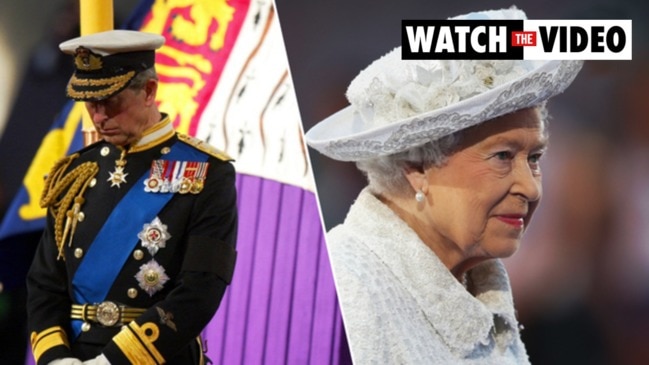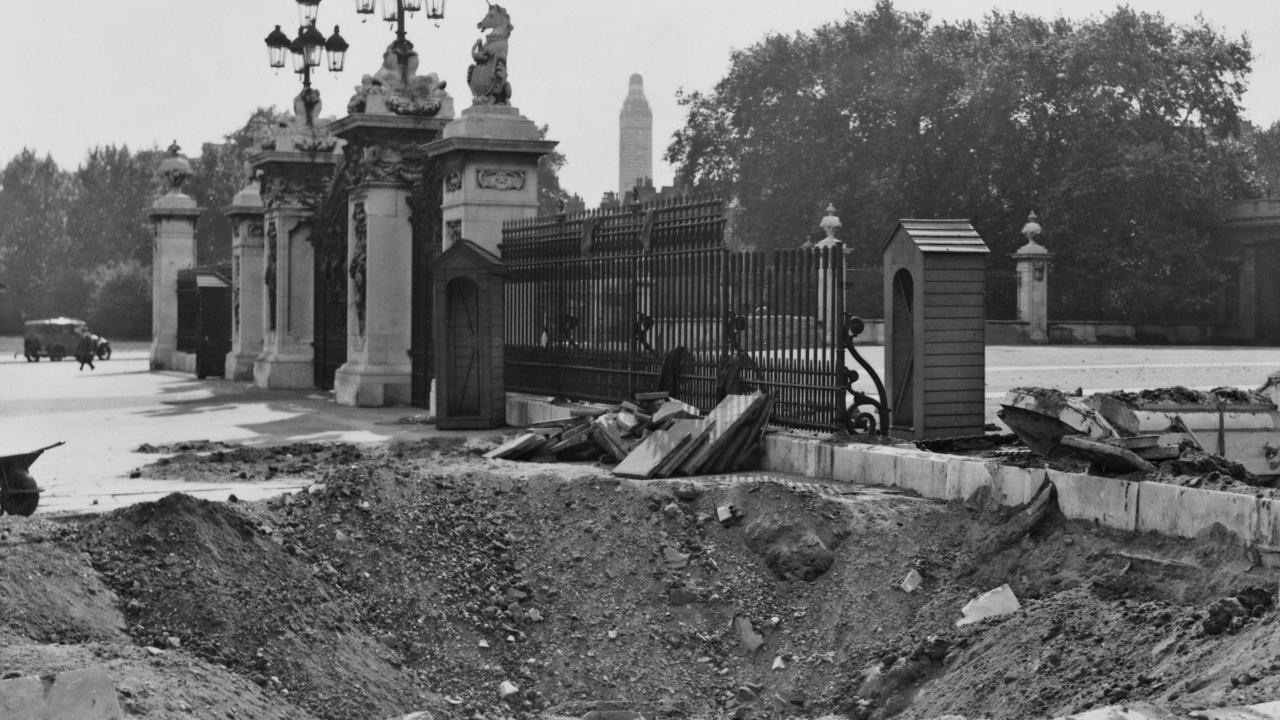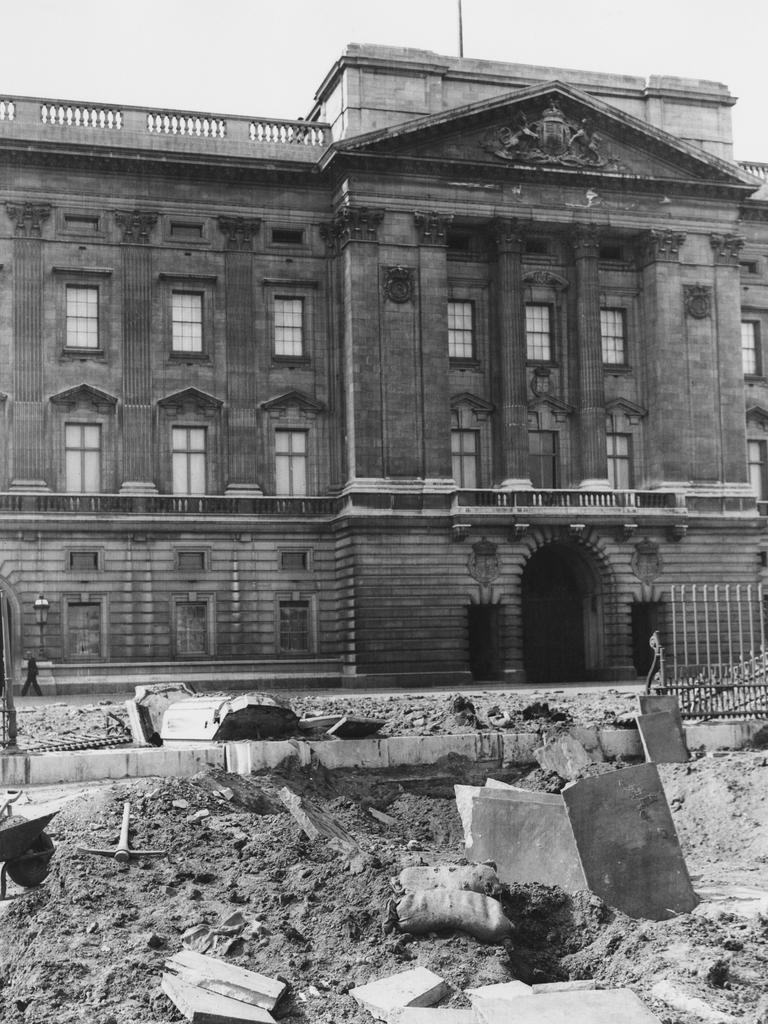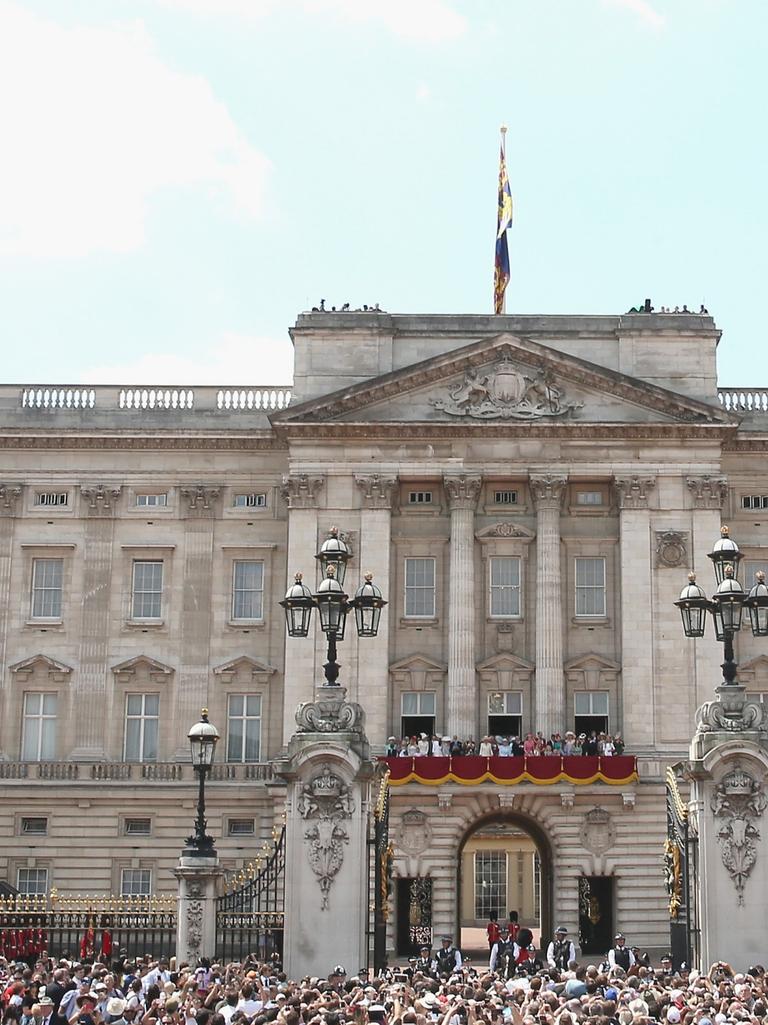Queen Mother recounts Germany’s bombing of Buckingham Palace
When Buckingham Palace was bombed on September 13, 1940, King George VI and Queen Elizabeth only narrowly escaped with their lives.

On what was just like any ordinary day at Buckingham Palace, King George VI was struggling to remove an eyelash from his eye when he and Queen Elizabeth, the Queen Mother, heard a whirring.
It was the unmistakeable sound of a German plane.
September 13 marked 79 years to the day since a Luftwaffe aircraft dove at great speed and dropped five bombs on Buckingham Palace, almost killing the King and Queen Mother inside.
The pair “only had time to look foolishly at each other when the scream of a bomb hurtled past us and exploded with a tremendous crash in the quadrangle”, the Queen Mother wrote in a letter to her mother-in-law, Queen Mary, only hours after the Nazi attack that could have killed her.
RELATED: Prince Andrew ‘lost it’ at Queen’s top aide
RELATED: The royal scandal 60 Minutes missed
RELATED: Ellen spills on meeting baby Archie
In the moment of “great danger”, it was the instinct of the King and Queen Mother to “get away from the windows” that saved their lives.
“Had the windows been closed instead of open, the whole of the glass would have splintered into the faces of the King and Queen, causing terrible injuries,” wrote then Prime Minister Winston Churchill, who inspected the Palace damage alongside the royals.
The Queen Mother’s “knees trembled a little bit”, but the servants remained “wonderfully calm” and the first aid party “rose magnificently to the occasion” when treating the three casualties.
“How they survived,” the Queen Mother marvelled of the men working in the palace chapel, where one of the five bombs hit, “I don’t know.”
One of the injured men, Alfred Davies, eventually died.
After lunching in the air-raid shelter later that day, the Queen Mother and King toured East and West Ham, where she “felt as if I was walking in a dead city” of evacuated houses, broken windows and abandoned possessions.
“It does affect me seeing this terrible and senseless destruction,” the Queen Mother wrote in her emotional recount.
“I think that really I mind it much more than being bombed myself.”

Winston Churchill recalled the King and Queen Mother’s dismissal of their own destruction at Buckingham Palace: “So little did they make of it that even I never realised until long afterwards what had actually happened.”
During the Blitz — Germany’s 1940-41 bombing campaign against Britain — the Palace’s symbolic value and the King and Queen Mother’s insistence on staying in residence made it a constant target for Luftwaffe attacks.
It was struck on 16 separate occasions — of which nine were direct hits. The Palace forecourt, inner quadrangle, chapel and north and south wings were all marred by high explosive and delayed-action bombs between September 8 1940 and June 1944.
“The children will not leave unless I do,” the Queen Mother declared.
“I shall not leave unless their father does, and the king will not leave the country in any circumstances, whatever.”


The family’s refusal to flee Britain against Foreign Office Advice and the September 13 bombing elevated the monarchs in the eyes of the public.
Praised for sharing their subjects’ hardship, the Queen Mother was prompted to express her solidarity with her fellow Londoners.
“I am glad we have been bombed,” she famously announced.
“It makes me feel I can look the East End in the face.”
Congratulations on their safety poured in from around the Empire and beyond, with the incident only coming to an end the following morning, when a delayed-action bomb — lying between the forecourt gates and the Victoria Memorial — finally detonated.
Prince Charles told the press his grandmother, Queen Elizabeth, had recalled a single unexploded bomb being carried out of the Palace on a stretcher, at a ceremony marking the anniversary of the start of the Blitz in September, 2010.
After a tiring and eventful day, the Queen Mother signed off her letter, remarking: “The people are marvellous, and full of fight. One could not imagine that life could become so terrible.
“We must win in the end.”




